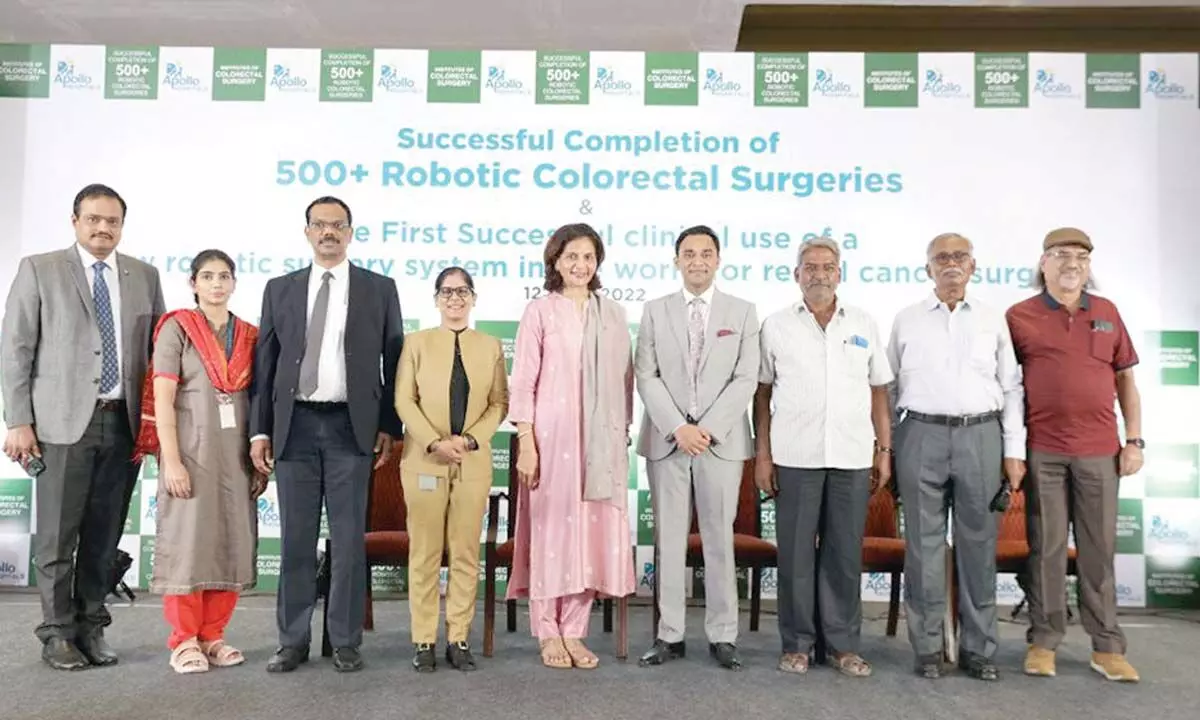Apollo completes 500 robotic colorectal surgeries

Apollo completes 500 robotic colorectal surgeries
Apollo Institute of Colorectal Surgery, India’s premier dedicated centre for colorectal cancer management has successfully completed more than 500 robotic colorectal surgeries over six years.
Apollo Institute of Colorectal Surgery, India's premier dedicated centre for colorectal cancer management has successfully completed more than 500 robotic colorectal surgeries over six years. The Apollo Institute of Colorectal Surgery began offering cutting-edge minimally invasive robotic surgical techniques and technology in the treatment of patients with colorectal diseases, especially colorectal cancer since 2016.
The rate of colorectal cancer has been increasing among young adults in their 20s to 40s over the last two decades. If colorectal cancer is identified in the early stages it can be completely cured and robotic colorectal surgery helps patients avoid colostomy and lead a normal life. Colorectal cancer is a common cancer globally but has a low reported incidence in India with GLOBOCAN-2018 ranking colon cancer 13th in terms of incidence and mortality with 27,605 new cases and 19,548 deaths annually. Since 2018, 27,605 new cases have been registered across India and the total number of patients living with the disease in India is estimated to be around 53,700. Colorectal cancer is on the rise especially among young Asian males with unhealthy lifestyle patterns one of the key reasons for its occurrence.
Preetha Reddy, Executive Vice Chairperson, Apollo Hospitals Group said, "At Apollo, we are bringing in cutting edge medical technology, representing the next era of healthcare innovation to treat cancers. In 2016, we started a specialised department for Colorectal Surgery and also simultaneously started Robotic Colorectal Surgery. This has led to precision surgery that causes minimal side-effects in patients. Over the last few years, there have been several advances in minimally invasive techniques such as robotic colorectal surgery, which has led to significant change in the management of colorectal diseases, particularly for rectal cancer surgery."

